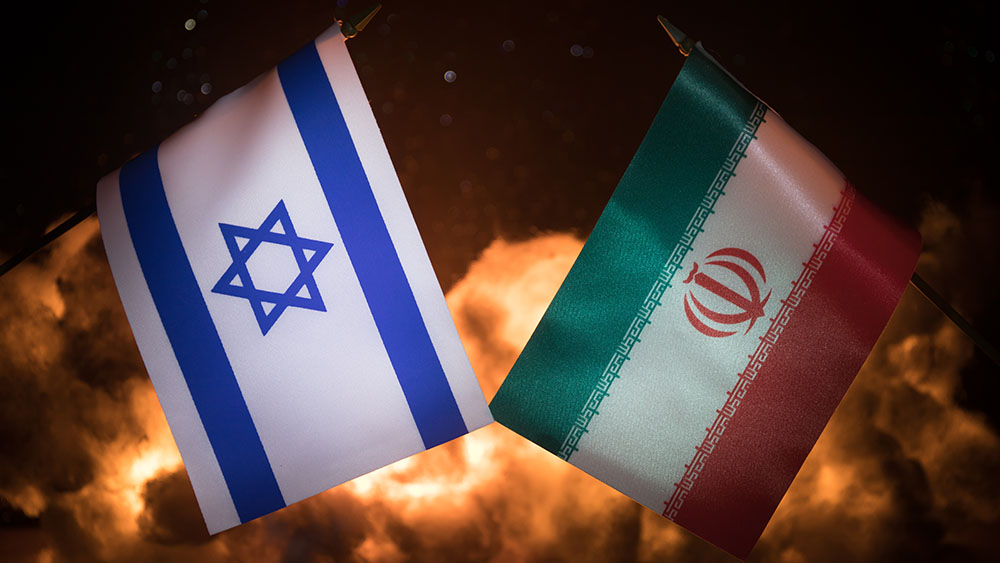Israel is on the verge of economic and mental health collapse as corporations shutter operations and new projects are cancelled
Iran, as well as the forces from its Axis of Resistance, has warned of retaliation against Israel soon and as the latter awaits the attacks, its economy and the mental health of its people continue to decline, bringing the nation to the brink of collapse.
“These two weeks have exhausted the market, as some economic activities have been canceled, and another part has been reduced due to public fear,” the economic affairs commentator for Israel’s Channel 13 News said Thursday.
The Israeli economy has already suffered in the 10 months of its genocidal attacks on Palestinians in Gaza. U.S. financial services firm Fitch even decided to downgrade the nation’s credit rating recently.
Due to threats of violence, there were also massive cancellations of flights from international airlines and losses incurred by canceled domestic tourist tours as well as the impact on hotels and tourist areas in northern Palestine, wreaking havoc on the country’s tourism industry.
The commentator also said that authorities now steer clear of holding mass festivals due to fear of shootings, bombings and other unfortunate events. They would not be able to bear the responsibility of direct casualties, he said.
Israel’s education sector will also be severely affected if the wait continues into September, as institutions will have to “maneuver within combat scenarios,” according to the Channel 13 broadcaster.
Meanwhile, health officials told GLZ Radio that the country has also seen an increase in “suicidal situations, psychotic situations, and the use of dangerous substances” among settlers over the past two weeks. A post by the radio station on X, formerly Twitter, indicated that the number of people applying for mental health screening at Rambam Hospital in Haifa has doubled in the last two weeks following the fear of Iran and Hezbollah’s imminent retaliation.
During a speech earlier this month, Hezbollah Secretary General Hassan Nasrallah stressed that the “long wait is part of the punishment and response,” referring to the death of the late commander Fuad Shukr, who was killed by an Israeli strike in the southern suburbs of Beirut. (Related: “Entire Resistance Axis” to retaliate against Israel for assassinating top Hamas leader.)
His comments were echoed days later by the leader of Yemen’s Ansarallah resistance, Abdul Malik al-Houthi, who said that the response to Israel’s bombing of Hodeidah Port is “inevitable.”
“The Israeli enemy, after the dangerous escalation from its side, is in a state of great fear in every sense of the word,” Houthi said, adding that “the inevitable response to the Israeli aggression that targeted the fuel tanks in Hodeidah port is a must, and it is coming, God willing.”
Iran’s mixed signals set the region on edge
Over the last two weeks, Israeli and U.S. officials sounded alarms about an imminent response. However, analysts say that the messaging from Iran and its powerful non-state partner seemed cryptic by design.
In his televised addresses, Nasrallah said a response to the attack in southern Beirut was imminent as he dismissed Western attempts to prevent a retaliatory strike, saying they were futile. “God willing, our response is coming,” Nasrallah declared solemnly in one address warning that they may act alone or with the Axis, referring to the Iran-backed network of armed groups that span Iraq, Syria, Yemen and Lebanon.
Nasrallah and his backers have touted the benefits of the “psychological war” in which Israelis brace for an attack. However, there are also indications that Tehran is dragging its feet as it seemed to not be really interested in the prospect of triggering a wider war.
According to a diplomat, Hezbollah and Iran had trapped themselves in their own vows of reprisals. Some have suggested that a possible ceasefire deal in Gaza may serve as an off-ramp, as the international community gears up for talks in Doha on Thursday. Iran has rejected the idea.
On the other hand, there is a widespread view that Israeli Prime Minister Benjamin Netanyahu must keep a war going to keep his growing domestic problems at bay.
“It is highly questionable whether there is any deterrence to be re-established,” said Mohammad Ali Shabani, Iran analyst and editor of Amwaj Media, an online outlet covering the region. “This is going to go on, and over time this is going to be very dangerous.”
“Iran and Hezbollah may have come to terms with this, recognizing that the open-endedness of their messaging around the anticipated response may be the strongest weapon at their disposal,” CNN reported.
Go to IsraelCollapse.com to read more stories on the current situation in Israel.
Sources for this article include:
Edition.CNN.com 1
X.com
Almayadeen.net
Edition.CNN.com 2
Read full article here


